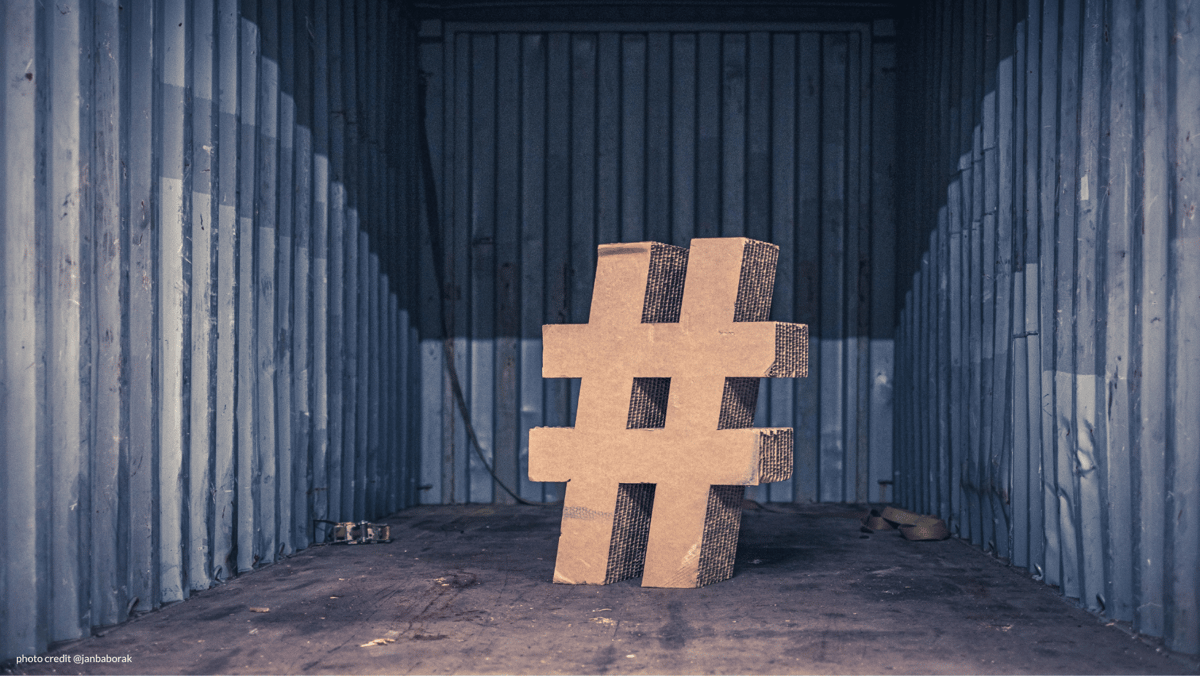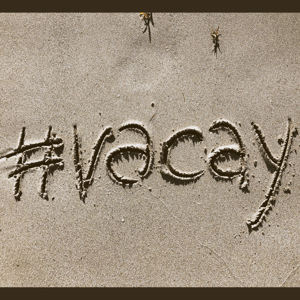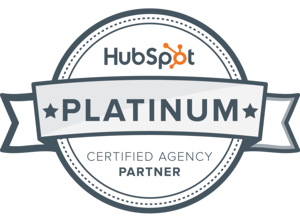Hashtags are everywhere on social media. But what do they do? And how important are they?
In this post, we'll explore the role of hashtags and discuss why using them can benefit your business. We'll also provide tips for crafting effective hashtags to help you reach your target audience.
So, let's start exploring hashtags and how you can maximize them in your digital marketing strategy.
 What Is a Hashtag?
What Is a Hashtag?
First, let's define what a hashtag is.
A hashtag is a word or phrase without spaces, preceded by the pound sign (#), and used on social media platforms to identify messages about a specific topic.
For example, if you want to post about the new Star Wars movie, you could use the hashtag #starwars.
This would allow other users interested in that topic to find your post. You can use hashtags on Twitter, Instagram, Facebook, and other social media sites.
How Do They Work?
When you post a message on social media with a hashtag, it becomes connected with all other statements that use the same hashtag.
This makes it easy for users to find all the posts about a particular topic and join the conversation.
Hashtags also help make your posts more visible to other users. When someone searches for a particular hashtag on social media, all posts that use that hashtag will appear in their results.
This can help your posts reach a wider audience and attract new followers.
You can use hashtags to:
- Track trends
- Follow specific topics
- Connect with other people who share your interests
The best way to use hashtags is to be thoughtful about your chosen ones and ensure they're relevant to your content. Otherwise, your posts may get lost in the noise.
Why You Need Them
Now that you know what a hashtag is and how it works, let's look at why you need to use them in your social media marketing. There are several reasons why you should use them, but here are the ones we find most compelling:
 Expand Your Reach
Expand Your Reach
Using relevant hashtags can help you reach a larger audience and expand your reach on social media. When you use hashtags specific to your industry or niche, you'll be able to connect with people who might not have otherwise found your content.
For example, let's say you own a small bakery. You could use the hashtag #foodie when sharing photos of your latest creations on Instagram.
Or, if you're a travel writer, you could use #wanderlust when sharing photos from your latest adventure on Twitter.
Increase Engagement
You can also use hashtags to increase engagement on your social media posts. When people see that you're using relevant hashtags, they'll be more likely to engage with your content because they know it's relevant to their interests.
And the more engagement you have, the more likely people are to see and share your content — which leads us to our next point...
Boost Your Visibility
Using hashtags wisely can help boost your visibility and get your content in front of more people. The key is to use popular, relevant hashtags to reach people interested in what you do or sell.
For example, if you sell handmade jewelry, you could use the hashtag #handmadejewelry when sharing photos of your latest collection on Instagram or Twitter.
Doing this will help you reach potential customers interested in buying from you.
Improve Your SEO
In addition to helping you reach more people and boosting your visibility, hashtags can also improve your SEO (search engine optimization).
Hashtags are indexed by search engines like Google, which means that using them can help improve the chances of people finding your content through a simple Google search.
As we mentioned before, it's essential to use relevant hashtags specific to your industry or niche so that Google knows exactly what kind of content you're sharing — and so they can index it accordingly.
 Humanize Your Business
Humanize Your Business
Lastly, using hashtags is a great way to humanize your business and make it seem more relatable and approachable.
Hashtags allow you to show some personality and have some fun with your content — which is especially important if you run a small business or startup where every interaction matters.
And by humanizing your business, you make it easier for potential customers or clients to connect with you — which could lead to them doing business with you down the road.
Tips on Using Hashtags for Social Media
While hashtags can be valuable to your social media marketing strategy, they're not always practical, especially if you don't use them correctly.
Some hashtags can seem spammy, while others could be more appealing.
There are five things you can do to maximize your hashtags:
Tip #1: Keep It Short and Sweet
Your hashtag should be short enough for people to remember and incorporate it into their social media posts easily.
For example, McDonald's uses the hashtag "#McMoments" to encourage people to share photos of themselves enjoying McDonald's food. And compare the two hashtags "#makeupjunkie" vs. "#ilovemakeup." Which one is easier to remember and use?
 Tip #2: Make It Relevant and Topical
Tip #2: Make It Relevant and Topical
Your hashtag should also be relevant to your brand and what you do. For example, Amazon frequently uses the hashtag "#AmazonFinds" to share available products on their site.
And since they sell everything from books to electronics to groceries, there's a good chance you'll find something that interests you when you browse their #AmazonFinds.
Tip #3: Use Lowercase Letters
While it isn't required, using lowercase letters for your hashtag makes it easier for people to read and remember.
For example, T-Mobile uses the hashtag "#SimpleChoice" for their unlimited data plan — notice how these letters are in sentence case.
This is in contrast to other companies who use all uppercase letters for their hashtags, such as "#WOWPresents" from World of Wonder or "#PSL" from Starbucks (which stands for "Pumpkin Spice Latte").
Tip #4: Avoid Using Special Characters
Special characters can make your hashtag challenging to read and remember, so it's best to avoid them if possible.
For example, L'Oréal Paris uses the hashtag "#BeautyForAll" for their inclusive beauty products. Notice how there are no special characters — just letters and spaces.
Tip #5: Capitalize Each New Word
If your hashtag is more than one word, capitalize each new word to make it easier to read.
For example, Krispy Kreme uses the hashtag "#HotLightApp" to let people know when hot doughnuts are coming off the line at their stores.
And Nike tells us to "Just Do It" with their iconic #JustDoIt campaign.
Boost Your Digital Marketing With Connection Model
So, what’s the takeaway? Hashtags are essential to social media marketing; if you want to use them effectively, you must keep a few best practices in mind.
Our tips will help you create hashtags that boost your business's online presence.
If you need more assistance crafting a social media marketing strategy or implementing hashtags into your program, don’t hesitate to reach out to Connection Model.
Our team is passionate about helping businesses grow, and we would be happy to put together a plan that meets your specific needs.
Written By: David Carpenter


